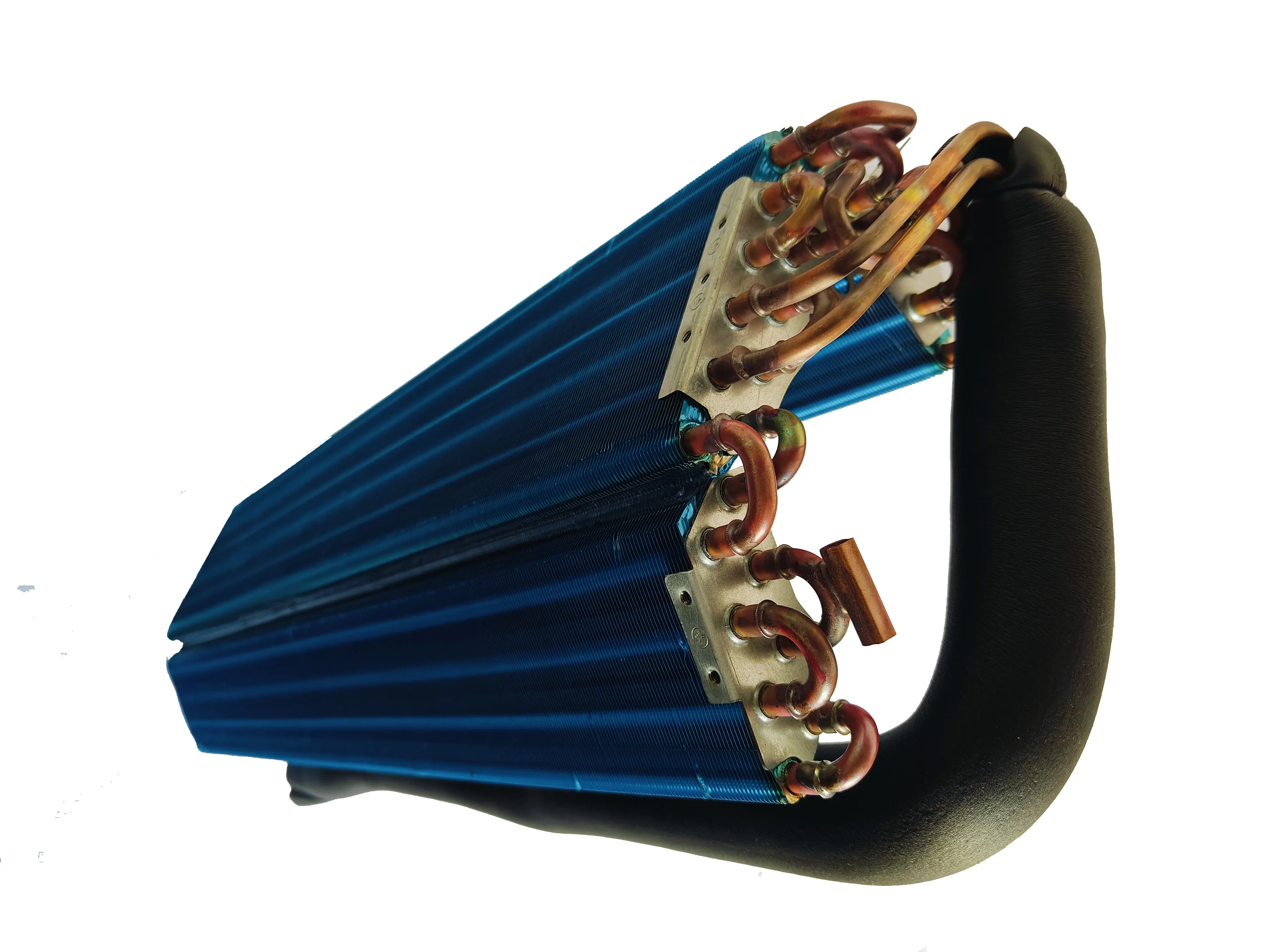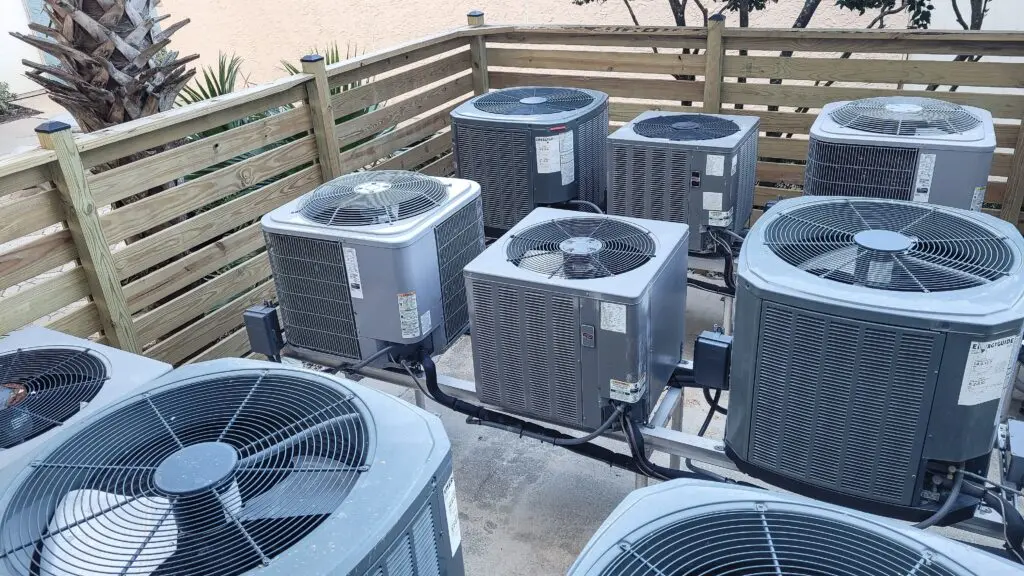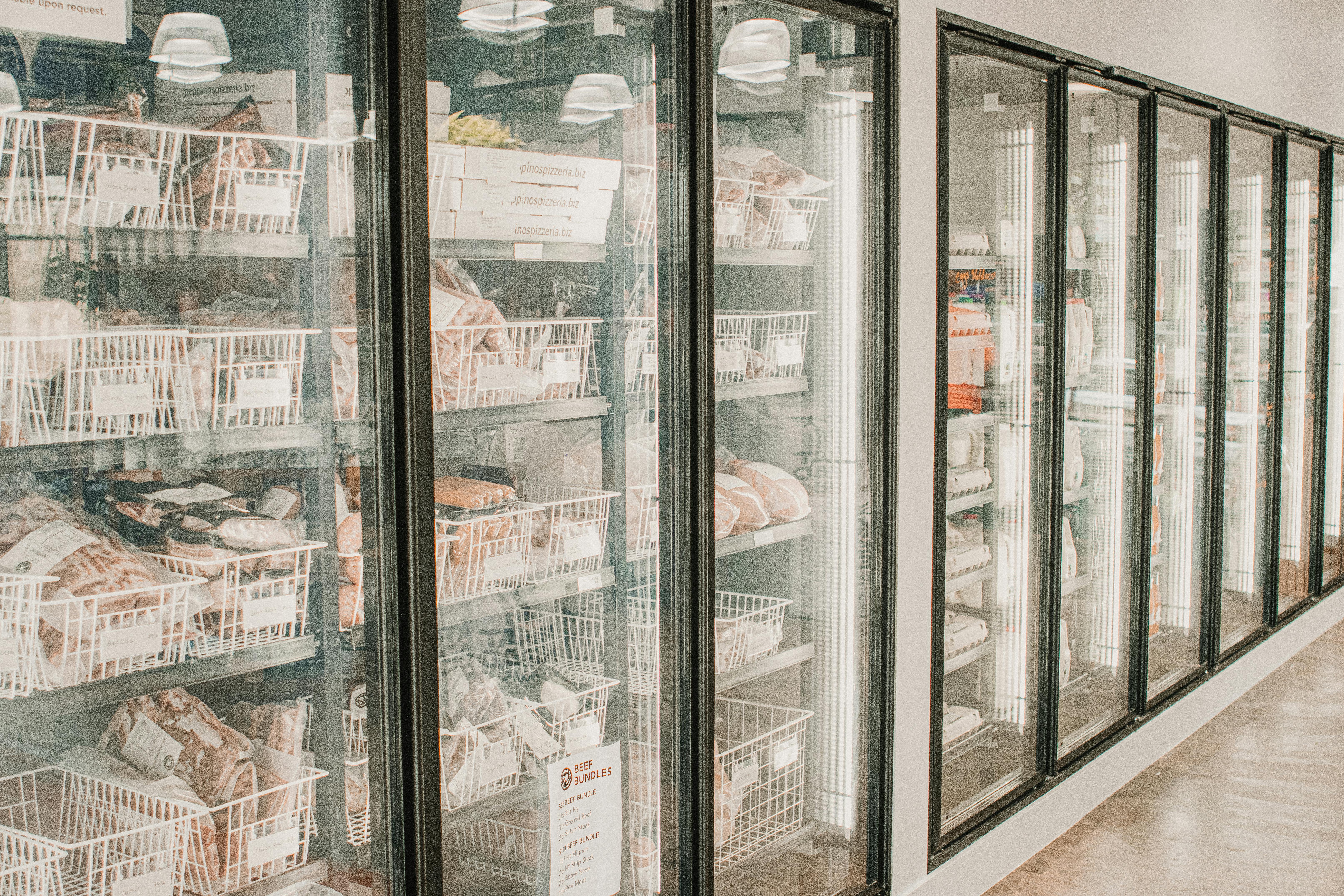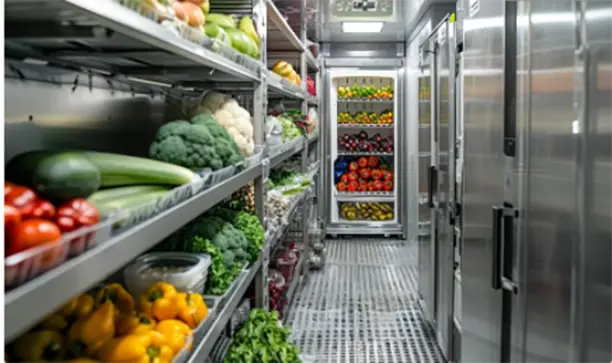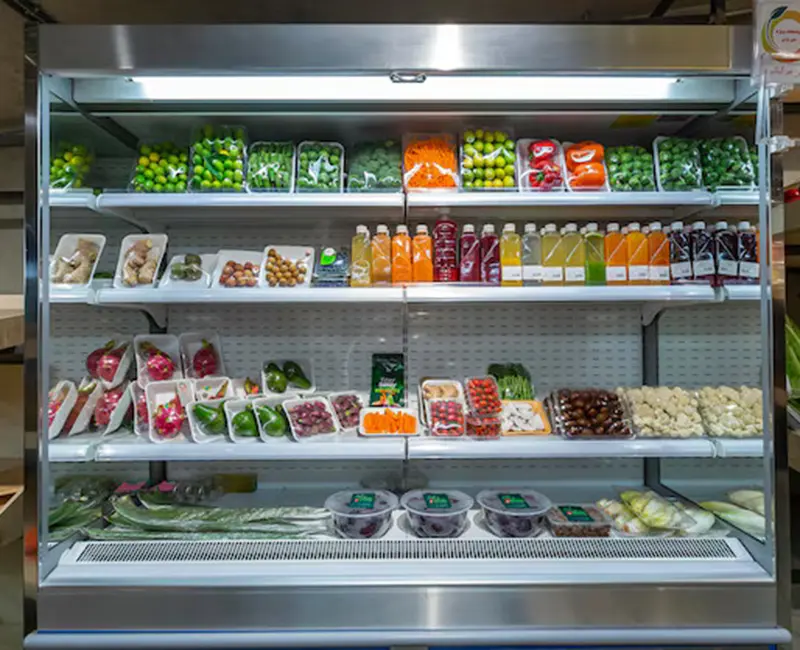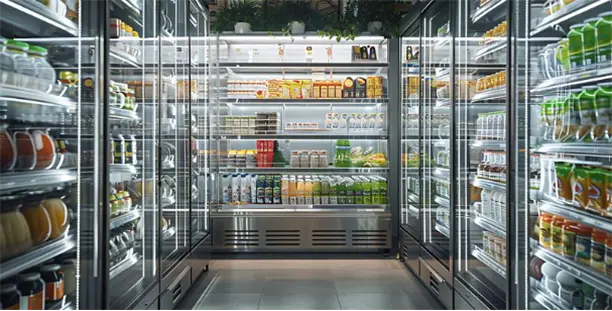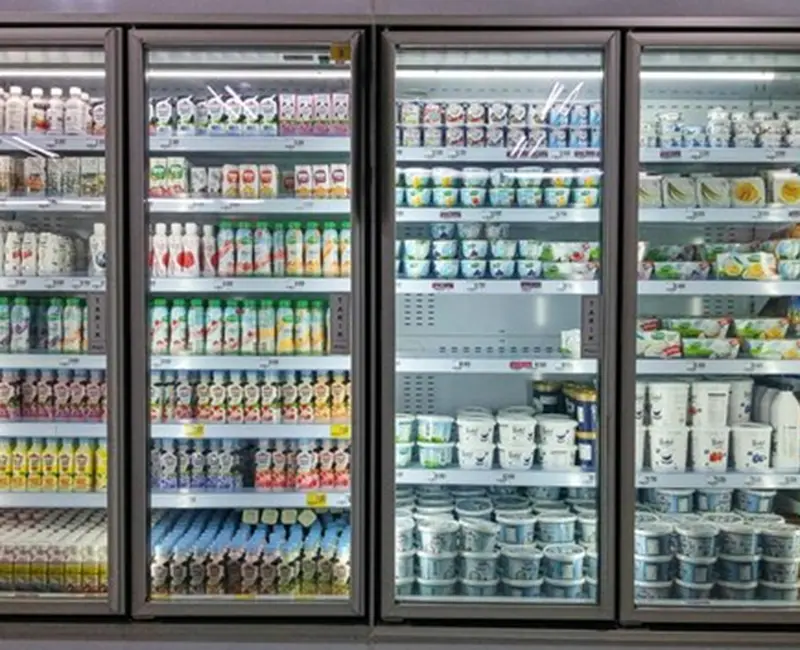What Are the Signs That Your Refrigeration Parts Need Replacement?
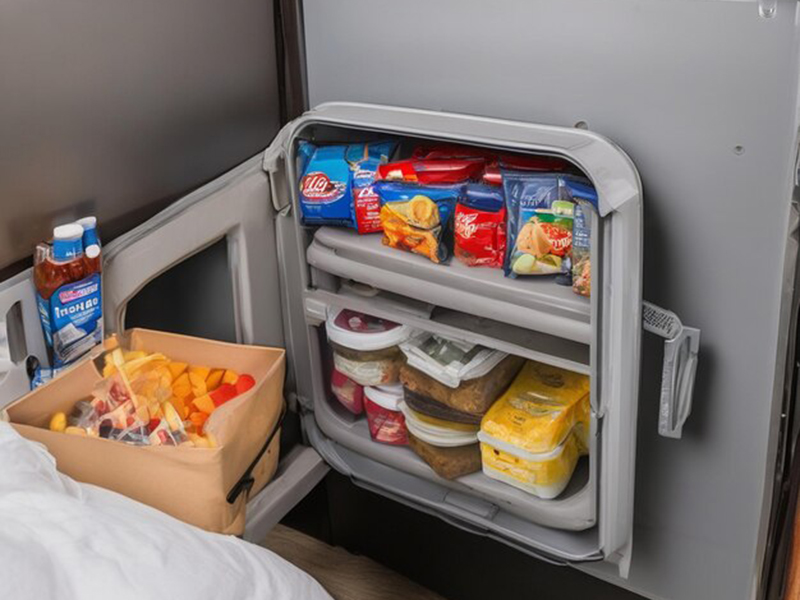
Refrigerators play a vital role in preserving food and beverages. When refrigeration parts start to fail, the appliance may struggle to maintain proper cooling, leading to spoiled food and wasted energy. I’ve noticed that unusual noises, temperature fluctuations, or frost buildup often signal the need for part replacement. Addressing these issues promptly can prevent further damage and extend the life of your refrigerator.
Ningbo Senjun New Materials Co., Ltd. offers reliable solutions for such problems. Their wire tube condenser and copper aluminum fin heat exchangers are designed for durability and efficiency. These components support a wide range of appliances, including refrigerators, freezers, and medical ultra-low temperature units.
Key Takeaways
- Strange sounds from your fridge mean parts might need fixing. Listen for humming, clicking, or grinding to stop more damage.
- Uneven cooling can ruin food. Look for warm areas and check if the thermostat and vents work well.
- Too much frost or ice shows a defrost issue. Check door seals and clean coils often to keep it running smoothly.
- Higher energy bills could mean your fridge is overworking due to bad parts. Fixing problems quickly can save money.
- Use good-quality replacement parts from trusted brands. This makes them last longer and prevents more repairs later.
Unusual Noises in Refrigeration Parts
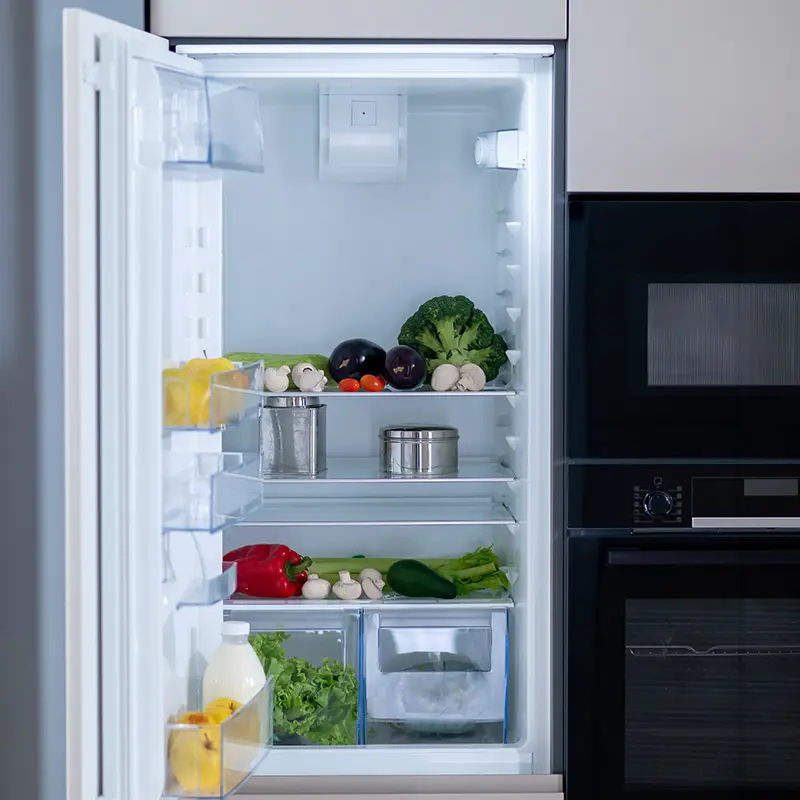
When I hear unusual noises coming from a refrigerator, I know it’s time to investigate. These sounds often point to issues with specific refrigeration parts that may need attention or replacement.
Humming, Clicking, or Buzzing Sounds
Humming, clicking, or buzzing noises are common signs of trouble. These sounds often come from the compressor or condenser fan. The compressor is the heart of the refrigerator, and when it struggles, it may produce a low humming sound. Clicking noises, on the other hand, might indicate the compressor is trying to start but failing. Buzzing could mean the condenser fan is obstructed or worn out.
I’ve found that wear and tear is a frequent cause of these noises. Over time, the moving parts in the compressor or fan can degrade. Debris buildup around the condenser fan can also lead to buzzing. Regular cleaning and maintenance can help prevent these issues, but if the noise persists, replacing the faulty part is the best solution.
Loud Grinding or Knocking Noises
Grinding or knocking noises are more alarming. These sounds often signal a failing motor or damaged fan blades. For example, the evaporator fan motor might grind if its bearings are worn out. Knocking noises could mean the fan blades are loose or hitting other components.
Ignoring these sounds can lead to bigger problems. A failing motor can overheat and damage other refrigeration parts, while damaged fan blades can disrupt airflow and reduce cooling efficiency. I always recommend addressing these noises promptly to avoid further damage.
Ningbo Senjun New Materials Co., Ltd. provides high-quality components like wire tube condensers and copper aluminum fin heat exchangers. These parts ensure reliable performance and durability, making them an excellent choice for replacing faulty refrigeration parts.
Inconsistent Cooling or Food Spoilage
When I notice inconsistent cooling in my refrigerator, I know it’s time to investigate. This issue often leads to food spoilage, which can be frustrating and costly. Let me share some common causes and signs to watch for.
Warm Spots in the Refrigerator
Warm spots inside the refrigerator usually point to a problem with the thermostat or temperature sensor. These components regulate the cooling process, and when they fail, the refrigerator struggles to maintain a consistent temperature. Another possible cause is blocked air vents. When airflow is restricted, certain areas may not cool properly. Faulty evaporator coils can also contribute to this issue by reducing the refrigerator's ability to circulate cold air effectively.
I always recommend checking for obstructions near the vents and ensuring the thermostat is functioning correctly. If the problem persists, replacing the faulty refrigeration parts might be necessary.
Food Spoiling Before Expiration
If food spoils before its expiration date, the refrigerator might have compressor or refrigerant issues. The compressor plays a crucial role in cooling, and when it malfunctions, the appliance cannot maintain the required temperature. A malfunctioning door seal can also cause temperature fluctuations by allowing warm air to enter the refrigerator.
I’ve found that inspecting the door seal for cracks or gaps can help identify the problem. If the seal is damaged, replacing it can restore the refrigerator’s efficiency. For more complex issues like compressor failure, professional assistance is often the best solution.
Excess Condensation on Food Items
Excess condensation on food items is another sign of trouble. It suggests that the refrigerator isn’t maintaining a stable temperature. This can happen due to a faulty thermometer, poor door sealing, or even a clogged drain. I’ve learned that these issues can lead to food being stored in the danger zone (above 40°F), increasing the risk of spoilage and potential health hazards.
Tip: To prevent condensation, ensure the door seals are tight and the drain is clear. If the problem continues, it may be time to replace critical parts.
Ningbo Senjun New Materials Co., Ltd. offers high-quality refrigeration components like wire tube condensers and copper aluminum fin heat exchangers. These parts are designed to enhance the performance and reliability of refrigerators, freezers, and other cooling appliances.
Excessive Frost or Ice Buildup

Excessive frost or ice buildup in a refrigerator or freezer is a clear sign that something isn’t working as it should. I’ve noticed that this issue not only reduces cooling efficiency but also makes it harder to store items properly. Let me explain the common causes and what you can do to address them.
Frost in the Freezer
When I see frost accumulating in the freezer, I immediately think of two potential culprits: a faulty defrost heater or timer. These components play a critical role in melting frost during the defrost cycle. If they fail, frost begins to build up quickly. Another common cause is damaged door gaskets. These gaskets create a seal to keep warm air out. When they’re cracked or loose, warm air enters the freezer, bringing moisture that condenses and freezes.
Here’s what I’ve learned about frost formation:
- Frost usually starts on the evaporator coils.
- Warm air entering the freezer during door openings contributes to frost buildup.
- An inefficient defrost cycle accelerates the problem, especially with frequent door use.
To fix this, I recommend checking the door gaskets for damage and replacing them if necessary. If the defrost heater or timer is the issue, replacing these refrigeration parts can restore proper function.
Ice on the Evaporator Coils
Ice on the evaporator coils is another sign of trouble. This often points to a problem with the defrost system. When the defrost cycle doesn’t work correctly, ice accumulates on the coils, restricting airflow. I’ve seen this lead to reduced cooling efficiency and uneven temperatures inside the refrigerator.
To prevent this, I suggest inspecting the defrost system regularly. If ice buildup persists, replacing the faulty parts is essential. Using high-quality components ensures long-term reliability. Ningbo Senjun New Materials Co., Ltd. specializes in producing durable wire tube condensers and copper aluminum fin heat exchangers. Their products are designed to enhance the performance of refrigerators, freezers, and other cooling appliances.
Tip: Regular maintenance, like cleaning the coils and checking the defrost system, can help prevent frost and ice buildup.
Rising Energy Bills Due to Faulty Refrigeration Parts
When I notice my energy bills rising unexpectedly, I often suspect my refrigerator might be the culprit. Faulty refrigeration parts can force the appliance to work harder, consuming more electricity than usual. Let me explain how this happens.
Increased Power Consumption
A failing compressor or motor often works harder than necessary to maintain the desired temperature. This extra effort increases energy consumption. Dirty condenser coils also contribute to inefficiency. I’ve learned that even a thin layer of dirt on the coils can reduce efficiency by 21% and increase energy use by 35%. Dust, dirt, and pet hair create a barrier on the coils, making it harder for the refrigerator to transfer heat effectively. This forces the appliance to run longer and consume more power.
To prevent this, I clean the condenser coils regularly. If the compressor or motor shows signs of failure, such as unusual noises or overheating, I replace them promptly. Using high-quality components, like those from Ningbo Senjun New Materials Co., Ltd., ensures reliable performance and energy efficiency. Their wire tube condensers and copper aluminum fin heat exchangers are designed to enhance the functionality of refrigerators and other cooling appliances.
Refrigerator Running Constantly
When my refrigerator runs constantly, I know something is wrong. A faulty thermostat or temperature control board often causes this issue. These parts regulate the cooling cycle, and when they fail, the refrigerator doesn’t know when to stop running. Leaky door seals also contribute to the problem. Warm air enters through the gaps, forcing the appliance to work harder to maintain the internal temperature.
I always check the door seals for cracks or gaps and replace them if needed. For more complex issues, like a malfunctioning thermostat, I consult a professional. Replacing faulty refrigeration parts with durable options from trusted manufacturers, such as Ningbo Senjun New Materials Co., Ltd., helps restore efficiency and reduce energy bills.
Tip: Regular maintenance, like cleaning the coils and inspecting door seals, can prevent unnecessary energy consumption and extend the life of your refrigerator.
Excessive Heat Production
When I notice excessive heat around my refrigerator, I know it’s time to investigate. A refrigerator should release some warmth, but when the exterior feels unusually hot, it often signals a deeper issue. Let me explain what might be causing this problem.
Overheating Refrigerator Exterior
May indicate a failing compressor or condenser coils.
The compressor and condenser coils play a vital role in the cooling process. The compressor compresses the refrigerant, while the condenser coils release heat. If either of these components fails, the refrigerator may overheat. I’ve found that a failing compressor often struggles to regulate the refrigerant, causing the appliance to work harder and generate more heat. Dirty or damaged condenser coils can also trap heat, making the exterior feel hotter than usual.
To address this, I always start by inspecting the condenser coils. Cleaning them regularly helps maintain their efficiency. If the compressor shows signs of failure, such as loud noises or overheating, I recommend replacing it promptly. Using high-quality parts ensures the refrigerator operates efficiently and safely.
Excessive heat can signal critical part failure.
Excessive heat isn’t just uncomfortable—it can indicate critical part failure. When I encounter this issue, I know it’s essential to act quickly. Prolonged overheating can damage other components, leading to costly repairs or even appliance replacement.
Tip: Regular maintenance, like cleaning the coils and checking for unusual heat, can prevent major issues. If you need replacement parts, choose reliable options from trusted manufacturers.
Ningbo Senjun New Materials Co., Ltd. specializes in producing durable wire tube condensers and copper aluminum fin heat exchangers. Their components are designed for refrigerators, freezers, and even medical ultra-low temperature units. I trust their products to deliver reliable performance and long-lasting durability.
Importance of Timely Repairs and Quality Parts
Preventing Further Damage
I’ve learned that ignoring early signs of refrigerator issues can lead to costly repairs down the line. For example, a small problem like a faulty door seal might seem insignificant. However, if left unaddressed, it can force the compressor to overwork, leading to a complete system failure. Timely repairs not only save money but also extend the lifespan of your refrigerator. Addressing issues promptly ensures the appliance operates efficiently and avoids unnecessary strain on other refrigeration parts.
When I notice unusual noises, inconsistent cooling, or frost buildup, I act quickly. These signs often indicate underlying problems that, if ignored, could escalate. Timely intervention helps maintain the refrigerator’s performance and prevents food spoilage. In my experience, staying proactive with repairs is the best way to protect your investment and avoid unexpected breakdowns.
Sourcing Quality Replacement Parts
Choosing the right replacement parts is just as important as addressing issues promptly. I always prioritize high-quality components to ensure compatibility and long-term performance. For instance, wire tube condensers and copper aluminum fin heat exchangers are essential for efficient heat transfer in refrigeration systems. These components play a critical role in maintaining consistent cooling and energy efficiency.
Wire tube condensers enhance heat transfer by utilizing finned tubes. The choice of fin material, such as aluminum or copper, significantly impacts performance. Aluminum fins are lightweight and resist corrosion, making them ideal for long-term use. Copper fins, on the other hand, offer superior thermal conductivity, ensuring optimal cooling. Understanding these features helps me select the best parts for my refrigerator’s needs.
Ningbo Senjun New Materials Co., Ltd. specializes in producing these high-quality components. Their wire tube condensers and copper aluminum fin heat exchangers are designed for a wide range of applications, including refrigerators, freezers, and medical ultra-low temperature units. I trust their products for their durability and efficiency, knowing they’ll keep my appliances running smoothly.
Tip: Always choose replacement parts from trusted manufacturers. High-quality components not only improve performance but also reduce the likelihood of future repairs.
Recognizing the signs of failing refrigeration parts is essential for keeping your appliance in top condition. Issues like spoiled food, rising energy bills, or frost buildup often indicate problems that need immediate attention. I always recommend consulting a professional with a strong reputation and certifications to ensure effective repairs. Using high-quality replacement parts from trusted manufacturers like Ningbo Senjun New Materials Co., Ltd. ensures durability and efficiency. Their wire tube condensers and copper aluminum fin heat exchangers are reliable solutions for various cooling appliances, from refrigerators to medical ultra-low temperature units.
FAQ
What are the most common signs of failing refrigeration parts?
I often notice unusual noises, inconsistent cooling, or frost buildup when parts start failing. Rising energy bills and excessive heat around the refrigerator are also common indicators. These signs usually mean it’s time to inspect and replace faulty components.
How can I prevent refrigeration part failures?
Regular maintenance helps a lot. I clean condenser coils, check door seals, and inspect the defrost system frequently. Using high-quality parts, like those from Ningbo Senjun New Materials Co., Ltd., ensures durability and reduces the risk of failure.
Why is my refrigerator making loud noises?
Loud noises often come from a failing motor, damaged fan blades, or a struggling compressor. I’ve found that replacing these parts promptly prevents further damage. Ningbo Senjun’s wire tube condensers and copper aluminum fin heat exchangers are excellent options for reliable replacements.
How do I choose quality replacement parts?
I always look for parts that offer durability and compatibility. Ningbo Senjun New Materials Co., Ltd. specializes in wire tube condensers and copper aluminum fin heat exchangers. Their products work well with refrigerators, freezers, and even medical cooling units.
When should I consult a professional for repairs?
If I notice persistent issues like inconsistent cooling, frost buildup, or rising energy bills, I call a professional. They can diagnose complex problems and recommend high-quality parts, such as those from Ningbo Senjun New Materials Co., Ltd., for effective repairs.









